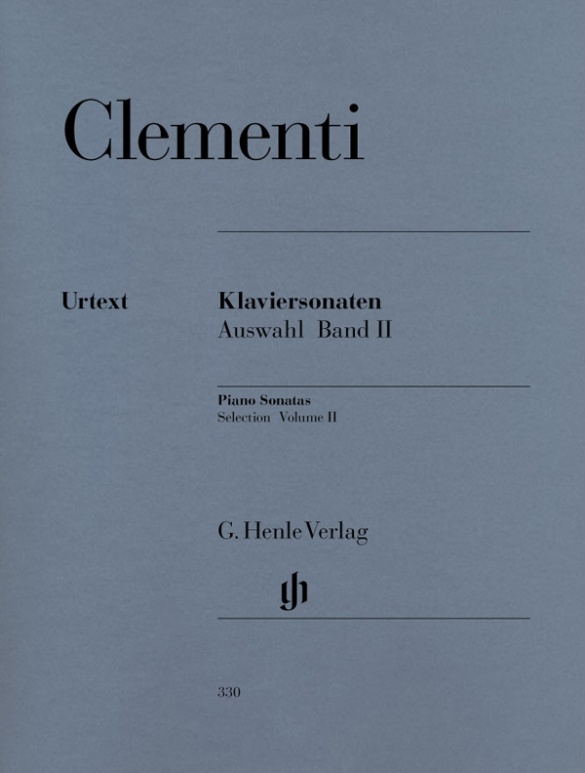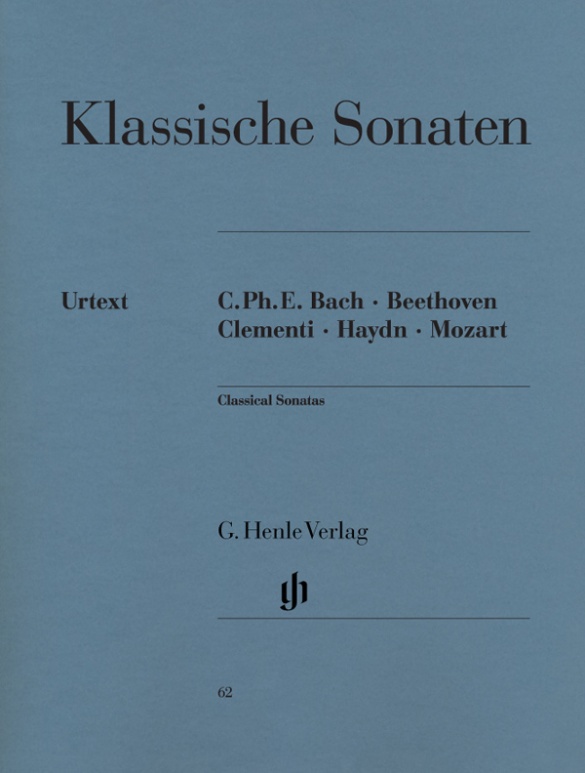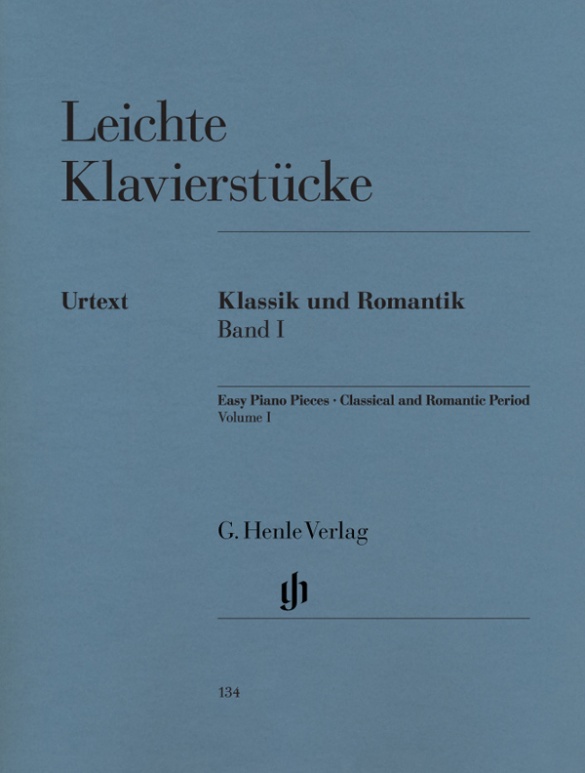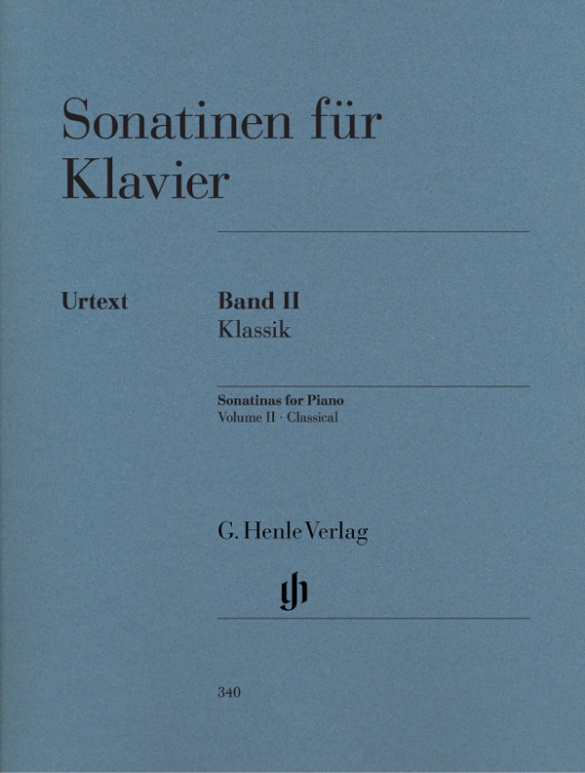Muzio Clementi
Piano Sonatas, Selection, Volume II (1790-1805)
Muzio Clementi was born four years before Mozart and outlived Beethoven by five. Thus the Italian pianist and composer helped fashion the entire Classical era in music. Following our first volume of selected piano sonatas from 1768-85, advanced pianists can become acquainted in this second volume with the unique features of eight later, harder-to-play sonatas from the second half of the composer’s creative period (1790-1805). Worthy of particular mention is the concluding Sonata in A major from Clementi’s last, crowning sonata collection, the opus 50. Dedicated to the congenial Luigi Cherubini, it combines poetry, deep earnestness, compositional artistry, and pianistic brilliance.
内容/詳細
作曲家について
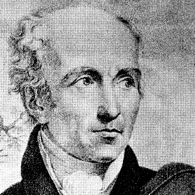
Muzio Clementi
A composer, pianist, keyboard-instrument manufacturer, and music publisher from Italy. His volumes of piano music, foremost among them the exercises from Gradus ad Parnassum, op. 44, continue to occupy a prominent position in piano pedagogy. As a manufacturer of keyboard instruments he contributed to the further development of the pianoforte. His efforts as a publisher included helping to establish the keyboard music of Johann Sebastian Bach throughout the world, and fostered the rediscovery of other Baroque composers. He mainly composed works for keyboard instruments, as well as orchestral and chamber music.
| 1752 | Born in Rome on January 23. First musical instruction from Antonio Boroni and others. |
| from 1766 | He is appointed organist at the church of San Lorenzo in Damaso for eight months. Thereafter he enters the musical service of the aristocrat Peter Beckford at his manorial home at Steepleton Iwerne in southern England. |
| from 1775 | through active concertgiving in London he establishes himself as a piano virtuoso. |
| from 1780 | A longer concert tour leads him, among other places, to Paris and Vienna, where he is introduced at court. |
| 1781 | On December 24, he enters a virtuoso competition against Wolfgang Amadeus Mozart initiated by Emperor Joseph II. |
| from 1785 | He is principal composer for the Hanover Square Grand Professional Concerts in London. |
| from 1802 | An eight-year business trip as publisher and keyboard manufacturer takes him through Europe. During this time his pupils, including John Field, present his keyboard instruments. |
| 1813–24 | He is director of the Royal Philharmonic Society in London. |
| 1814 | On December 7 he becomes a member of the Royal Swedish Academy of Music. |
| 1832 | Dies in Evesham (Worcestershire) on March 10. |
校訂者や運指担当者について
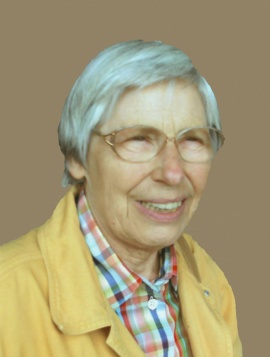
Sonja Gerlach (校訂)
Sonja Gerlach was born in Hannover in 1936. She did a secondary school teaching degree (Staatsexamen) in music and mathematics in Berlin. From 1965 to 1999 she was a research associate and editor at the Joseph Haydn-Institut in Cologne. In addition to her work as an editor and researcher she addressed questions concerning the chronology of Haydn’s symphonies. She is also very interested in problems of ascertaining authenticity of works in Haydn’s different genres.
In 2000 she retired and moved to Munich where she now lives.
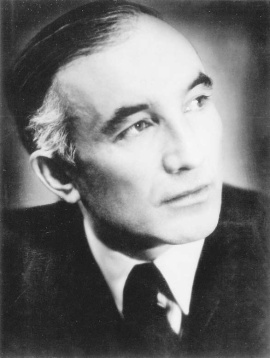
Hans-Martin Theopold (運指)
Prof. Hans-Martin Theopold, was born to a pastor’s family in Detmold on 22 April 1904, the youngest of five children. Even as a child he often played the organ in the “Marktkirche” and soon began to take piano lessons with Theodor Vehmeier. At the age of 17 he made his debut at the Landestheater in Detmold with Ludwig van Beethoven’s Piano Concerto in C major under Friedrich Quast (Herford). Following the successful completion of his schooling at the Gymnasium Leopoldinum in Detmold, he went on to study music and piano (main subject): from 1922–23 at the “Württembergische Hochschule für Musik” in Stuttgart (with Max Pauer, 1866–1945) and then from 1923–1928 at the “Staatliche Akademische Hochschule für Musik” in Berlin-Charlottenburg (with Richard Rössler, 1880–1962, and Waldemar Lütschg, 1877–1948). After completing his piano studies (graduating with “very good”) in 1928, he began an active solo career both at home and abroad (USA, Switzerland, Scandinavia, the Baltic states, the Balkans). As a member of the Chamber Music Association of the State Opera in Berlin (from 1933) he also gave countless chamber music concerts, including ones with his violin partner Gustav Havemann (1882–1960).
In the 1930s, audiences and the press alike raved about Theopold’s extraordinary gifts as a pianist: “This young player has it in him to soon become one of the best players in Germany. A superior technique, a wonderful singing piano tone, the strength of a Titan, but not at all hard due to the incomparably gentle elasticity of his touch” [Münchener Zeitung, 21 November 1933]. – “H.M. Theopold gave convincing proof of his splendid pianistic ability in an extremely gripping sonata with a modern idiom by Alban Berg, but predominantly in Schubert’s […] Wanderer Fantasy, which he played with a polished technique and creative power” [Weser-Zeitung, 21 December 1932]. Theopold was awarded several prizes, including the “Grotrian-Steinweg-Preis” in 1928.
In 1937 Theopold became a teacher for the piano (main subject) at the “Bayerisches Staatskonservatorium der Musik” in Würzburg. In 1939 he married Irene Tatjana Wülfing, who was from Moscow. From 1943 he became head of the piano master-class at the “Nordische Musikschule” in Bremen, although this was interrupted by the events of the war. Following his return from a prisoner of war camp, Theopold gave concerts and taught although he did not hold a permanent position. From 1955–1956 he was acting head of the piano master-class at the “Bergisches Landeskonservatorium” in Wuppertal, finally being appointed Professor for Piano on 1 April 1956 at the “Staatliches Institut für Schul- und Volksmusik” in Detmold, later at the “Nordwestdeutsche Musikakademie Detmold” (today “Hochschule für Musik Detmold”), where he taught for decades. On 30 September 1969 he retired. “His students extol his pedagogical gifts. […] Humour, charm, helpfulness and kind-heartedness moderate the strictness of his professional ethos as a musician and teacher” (Lippische Rundschau, 23 April 1969; see also: Lippische Landeszeitung 22 April 1969 on the occasion of Theopold’s 65. birthday: “Prof. Theopold, a modest but at the same time energetic man, is an enthusiastic teacher”). Theopold died in Detmold in 2000.
Contact with Günter Henle was established directly after the publishing house was founded, when Theopold thanked the publishers with great enthusiasm for its first Urtext editions. His extensive correspondence with the publishing house was bequeathed to the Lippische Landesbibliothek in 2014 to ensure its long-term accessibility to the public. The letters testify not only to Theopold’s great interest in musical sources and text questions but also to his initial strict refusal (!) of fingerings in text-critical editions such as these: “For fingerings are and remain something individual no matter what their quality” (letter to Günter Henle from 26 May 1949 {publishing house archives}). Günter Henle was not, however, to be swayed and stressed the necessity of fingerings in his Urtext editions: “It is better to publish the Urtext […] with fingerings that are not necessary for a few individuals, or that might even, I admit, be considered irritating here and there” (letter to Hans-Martin Theopold of 17 September 1953).
It was only in 1955 that Theopold accepted Günter Henle’s offer of contributing fingerings for an Urtext edition that was in the process of being prepared by way of trial. (HN 74, Schubert, Complete Dances for Piano, Volume 1). Following this, Theopold was commissioned to write the fingerings for nearly all of the publishing house’s new editions in quick succession. Günter Henle, himself a good pianist, greatly valued Theopold’s fingerings, and also the many suggestions regarding the musical text in question. In addition, Theopold was always very reliable, thorough and conscientious – something that is not unimportant with editorial work!
Thus to date Hans-Martin Theopold has provided the fingerings for the greatest number of Henle Urtext editions by far – 226 editions (!) in total.
We would like to thank Mrs Margot Theopold and the Hochschule für Musik in Detmold for their great support in providing biographical material.
G. Henle Verlag
製品安全に関する情報

G. Henle Verlag
製品の製造元に関する情報はこちらでご覧いただけます。G. Henle Verlag
Forstenrieder Allee 122
81476 München
info@henle.de
www.henle.com
おすすめ
autogenerated_cross_selling
このタイトルを含む他の版
このタイトルを含む他の版


